Covid: PM promises caution over 21 June lockdown end
- Published
Boris Johnson: "In order to have a irreversible road map you got to be cautious"
Boris Johnson has said the government must "be cautious" as it decides whether to end all Covid restrictions in England on 21 June.
Cases are rising as the Delta variant spreads, with details of the next step on the "roadmap" due on Monday.
The prime minister told the BBC it was important any easing of restrictions was "irreversible" and warned that hospital admissions were increasing.
The BBC has been told a delay of up to four weeks is being considered.
Senior medical advisers have urged a brake to the final easing of lockdown restrictions, which, if it went ahead in full, would mean removing limits on social contact and the number of people allowed into homes.
Pubs, clubs, theatres and cinemas would also be allowed to operate without capacity limits, with sports events taking place in full stadiums, nightclubs reopening and limits of the number of wedding guests going.
Asked by BBC political editor Laura Kuenssberg whether all restrictions would now be lifted, Mr Johnson said people would have to wait until Monday to find out.
"What I can certainly say is we are looking at the data, continuing to do that, but what you can certainly take is… the roadmap was always cautious but irreversible, and in order to have an irreversible roadmap, we've got to be cautious."
A further 7,738 lab-confirmed cases of the virus were reported in the UK on Saturday, and a further 12 people recorded to have died within 28 days of a positive test.
Infections continue to rise, with 50% more cases reported in the past seven days than the previous seven.


For weeks we've practised modern day kremlinogy - getting our hopes up for an end of restrictions in England at the summer solstice whenever the PM sounds upbeat, then feeling more downhearted when government minister after minister uses the C word: caution.
We will get a decision on Monday but it seems clear from Boris Johnson's use of the words "caution" and "irreversible" in his BBC interview that a delay is inevitable.
In order to make his roadmap irreversible, the PM is likely to heed scientific advisers' advice to give himself some more breathing space while the vaccination programme rolls out further.
Mr Johnson's mantra has been "data not dates" but in truth there may just not be enough data on the extent to which vaccinations are breaking the link between infection and hospitalisation for him to sweep away all remaining restrictions.
But sources say the government is looking at a range of options for 21 June.
So it's possible that - for example - a four week delay is reviewed after a fortnight when more data is available.
Or that some restrictions are eased while most social distancing measures stay in place.
The anxious wait for a decision is almost over but it could be that what some describe as 'Freedom Day' - like the horizon - moves further away the closer we appear to get.

Answering questions at the G7 summit in Cornwall earlier, chief scientific adviser Sir Patrick Vallance would not be drawn on the decision about 21 June, but said the "Delta variant [is] increasing in the UK".
He said there were lessons from the pandemic that could continue to apply in everyday life - such as self-isolating after symptoms of any infectious disease, the importance of ventilation, and hand hygiene.
The Delta variant, first identified in India, now accounts for nine in 10 UK coronavirus cases.
It is roughly 60% more transmissible than the Alpha - or Kent - variant, Public Health England data suggests.
The government put India on the "red list" of places to which travel is banned on 23 April, two weeks later than Pakistan and Bangladesh, which had fewer cases per million at the time.
The prime minister defending the timing of the decision, saying: "Pakistan had about 13 times as many variants of concern or variants of interest as as India at that stage."
"Yet we put India on the red list on 23 April, which was days before it was even identified as a variant under investigation."
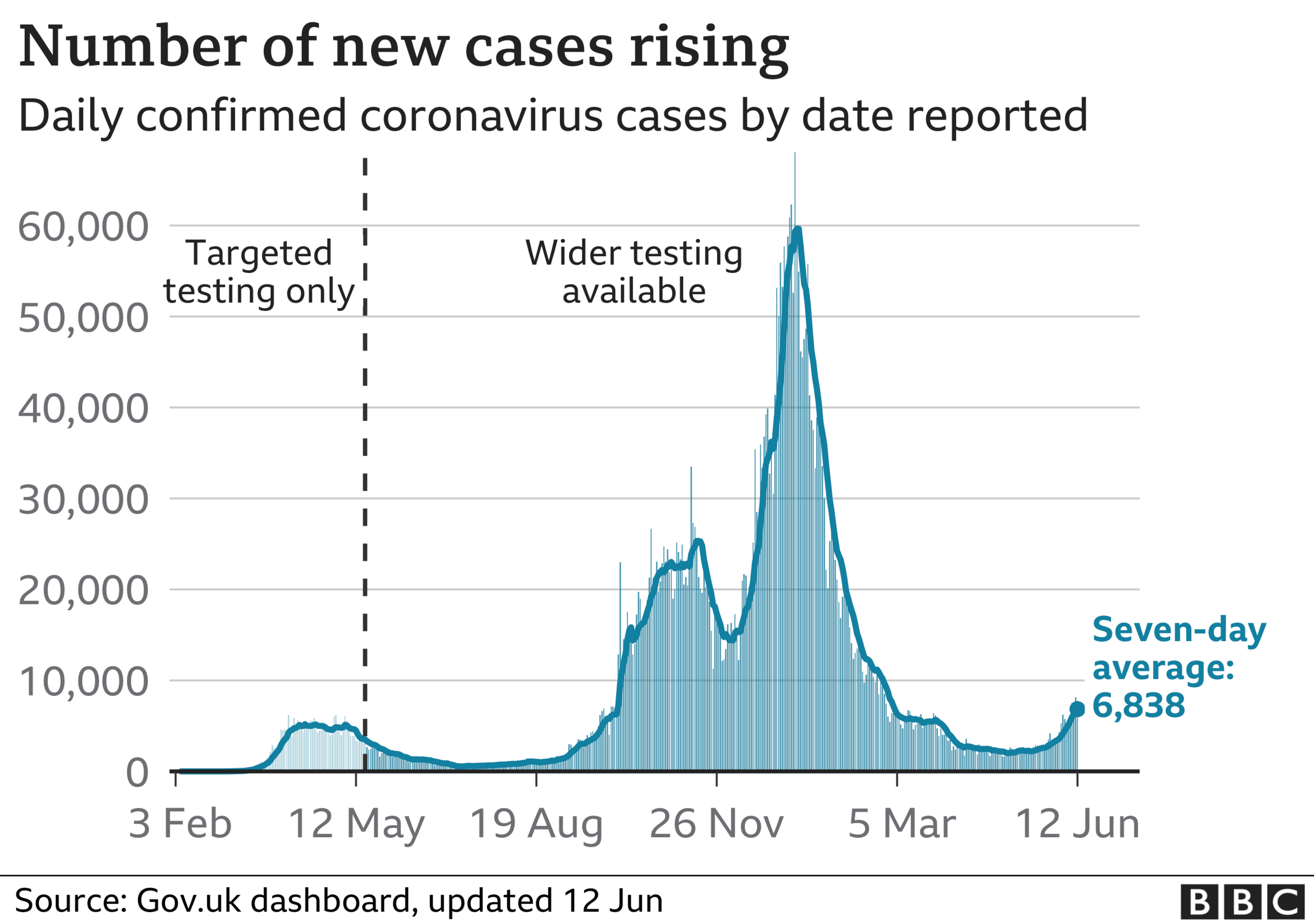
Mr Johnson, who is currently hosting the G7 summit in Carbis Bay, Cornwall, said the government had made "a massive progress with the vaccination programme".
"It's done a huge amount of good - but you have got to be cautious to be irreversible," he added.
"Again you have hospitalisations up, you've got cases up. There are grounds for caution."
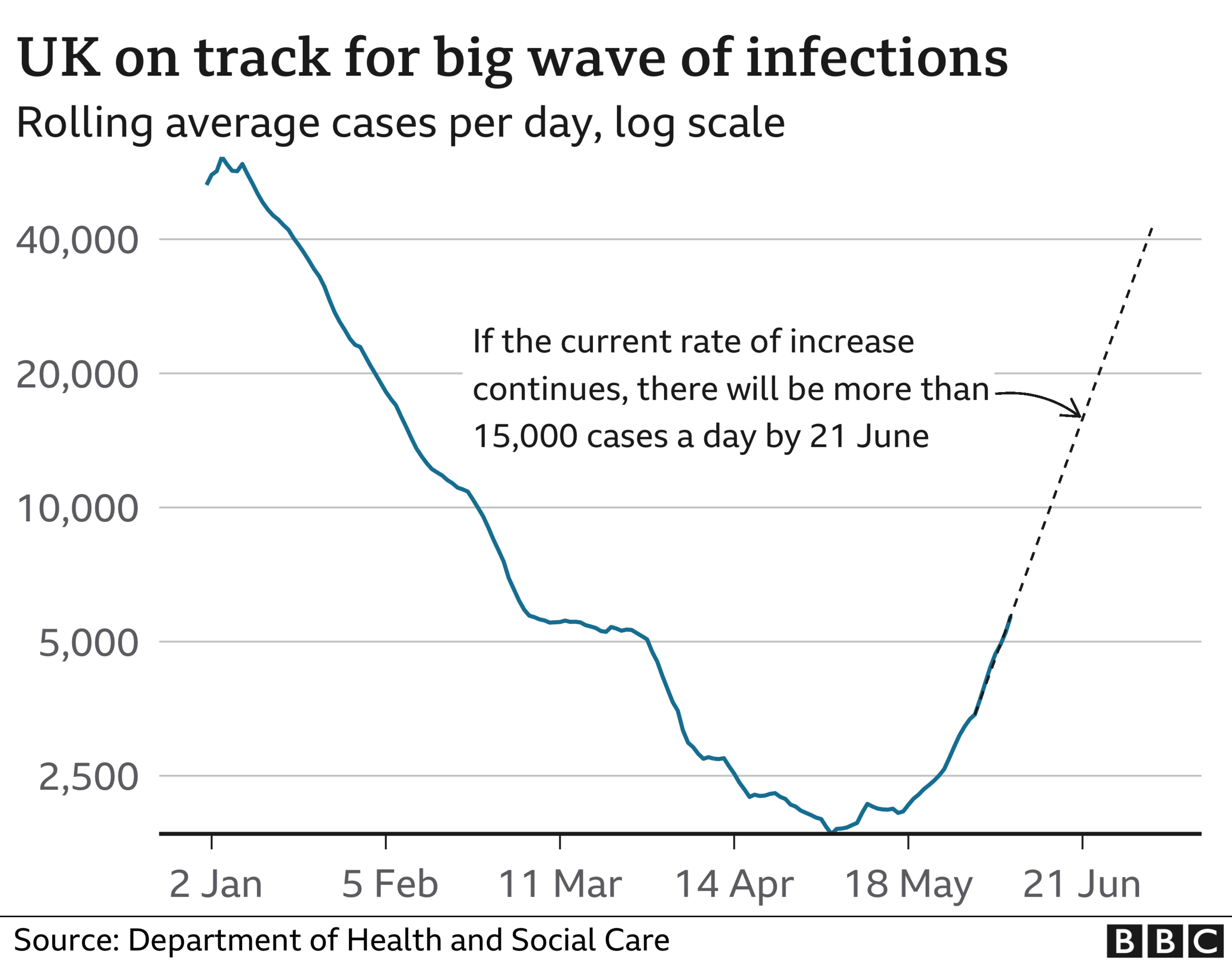
On Friday, the British Medical Association joined public health officials in calling for a delay to ending restrictions.
The government said in February that England's restrictions would only be lifted if:
the vaccine rollout continues successfully
evidence shows vaccines effectively reduce hospitalisations and deaths in those vaccinated
infection rates do not risk a surge in hospitalisations which would put unsustainable pressure on the NHS
its assessment of the risks is not fundamentally changed by new variants of concern
More than 29 million people in the UK have had both doses of a vaccine - 55.9% of the adult population.
The R number in England is estimated to have risen to between 1.2 and 1.4, meaning that, on average, every 10 people with Covid will infect between 12 and 14 others.
The easing of restrictions is happening at different speeds across the other nations of the UK with 21 June being given as an "indicative date" for a number of changes, external in Northern Ireland, including 10 people from two households being allowed to meet in private homes, up to 15 people being able to meet outdoors in a garden and theatres and concerts able to restart.
Lockdown measures in Wales, external will be reviewed on 21 June, while the whole of Scotland is due to move to level zero on 28 June - but the prevalence of the Delta variant may delay that.
Elsewhere at the G7:
Mr Johnson discussed November's COP26 climate change summit with UN Secretary General Antonio Guterres, with the pair agreeing that countries must make ambitious commitments to cut carbon emissions
Environmental protesters brought streets to a standstill near the summit in Cornwall
The PM has held meetings with EU leaders, as well as his French and German counterparts, as a row continues over the future of trade checks in Northern Ireland
The seven world leaders have agreed on plan to support lower- and middle-income countries with investment to rival a similar programme in China
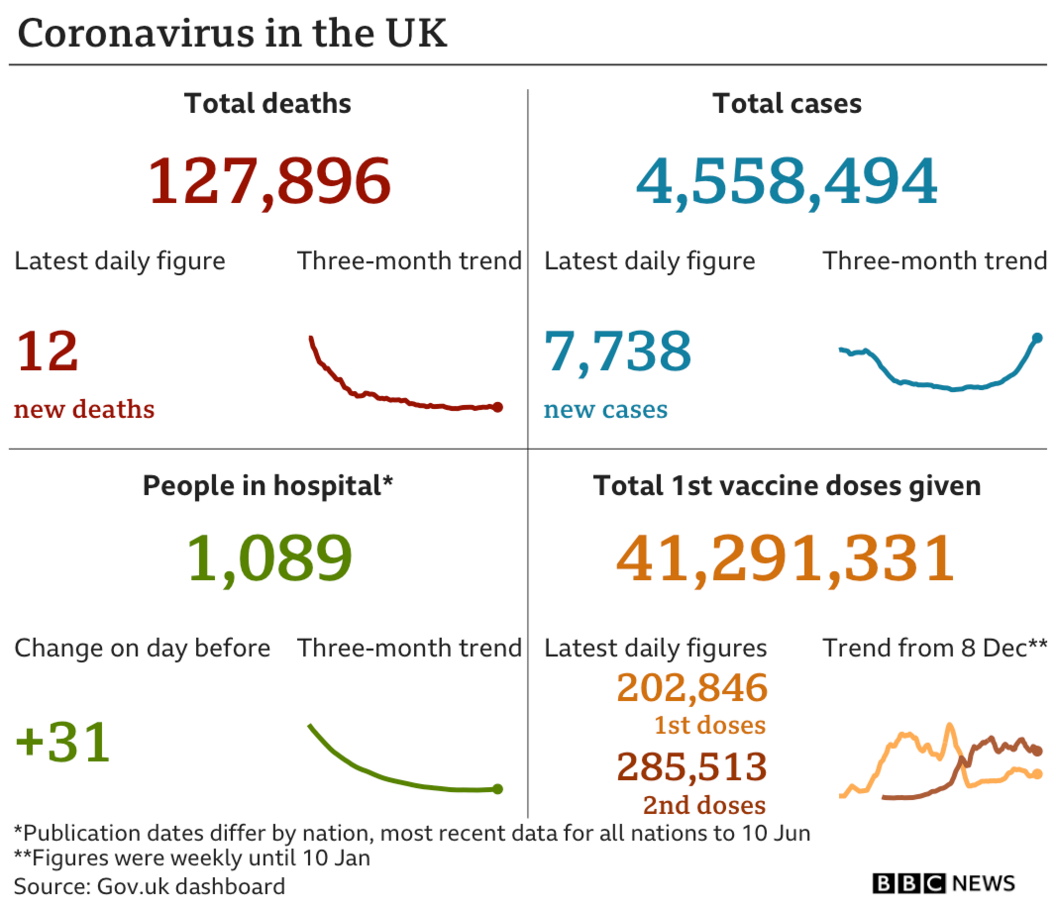

ENGLAND'S EUROS ANTHEM: Krept and Konan seek advice from players, Gareth Southgate and fellow rappers
FOR NIGHTS IN: Choose one of our films to entertain you this evening

- Published12 June 2021
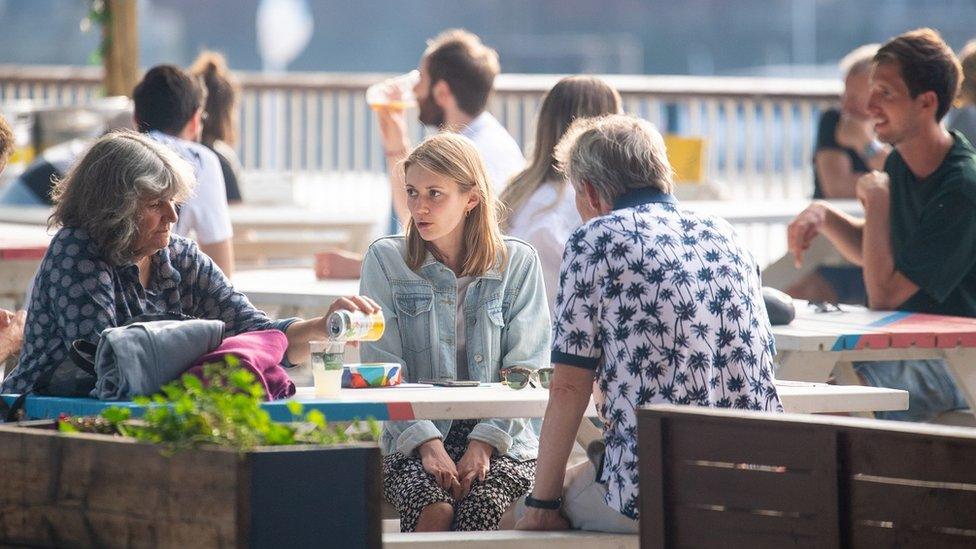
- Published12 June 2021
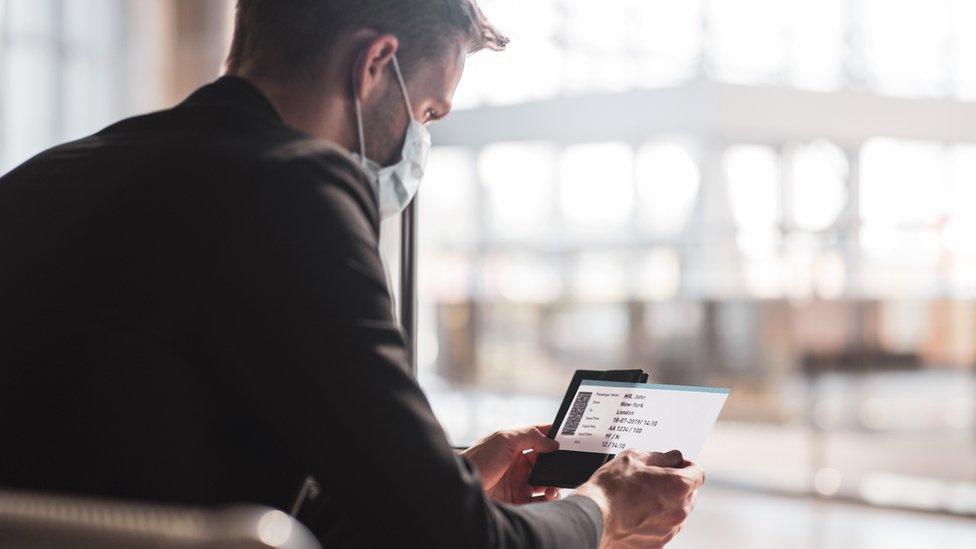
- Published9 June 2021
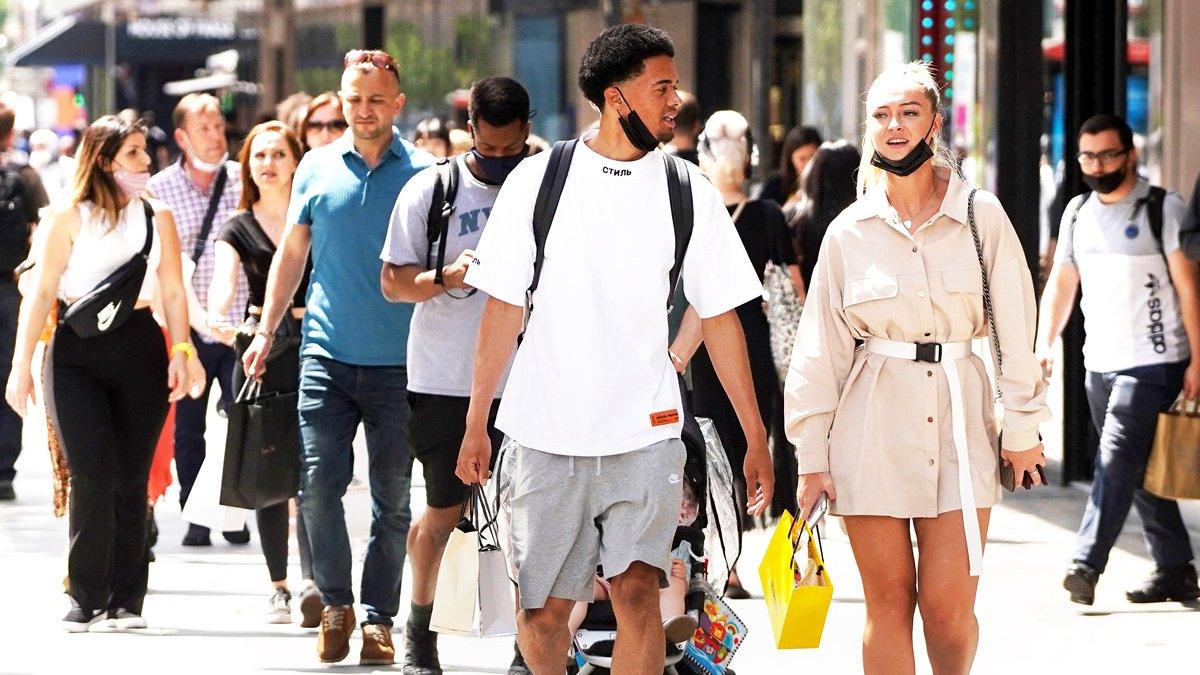
- Published11 June 2021